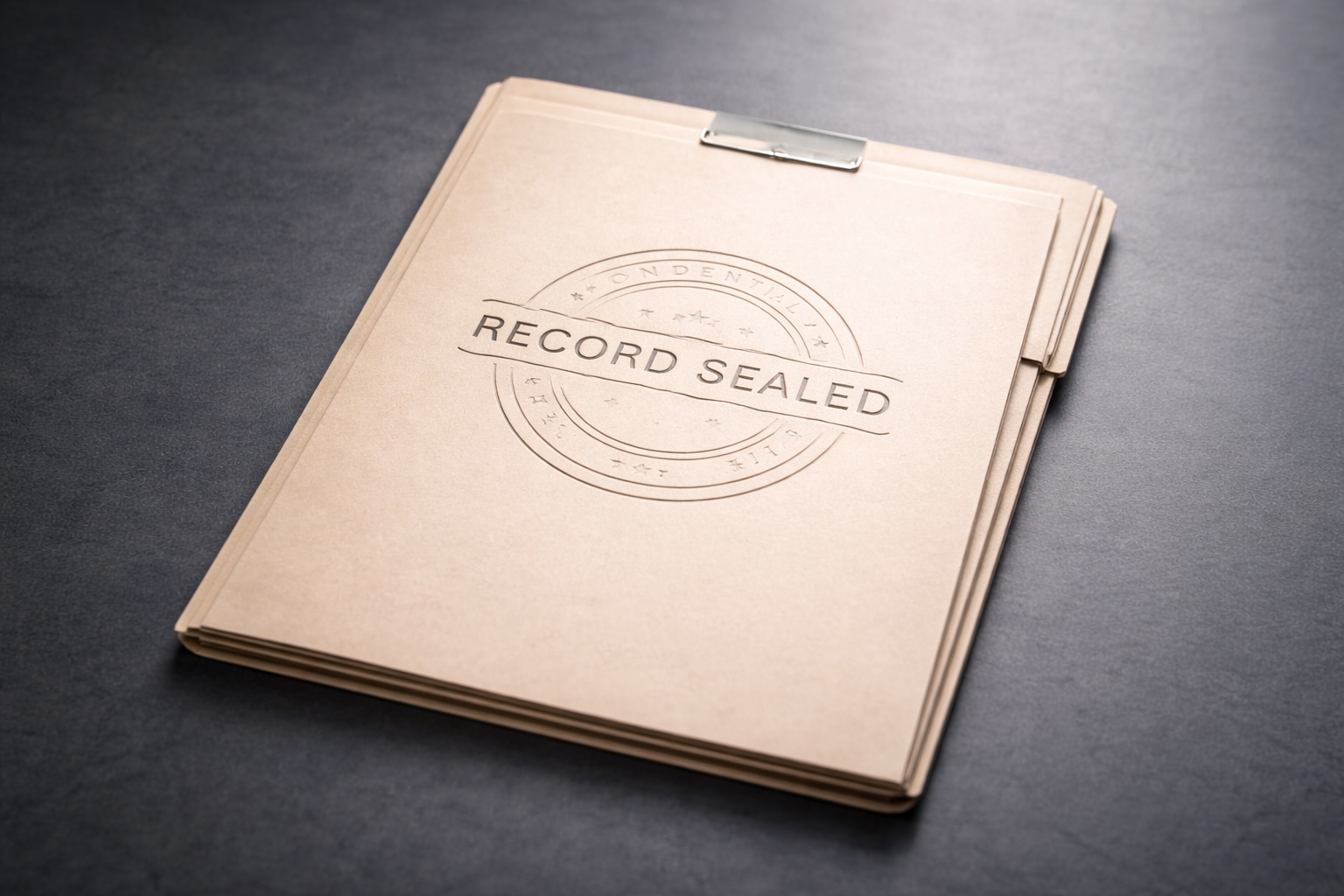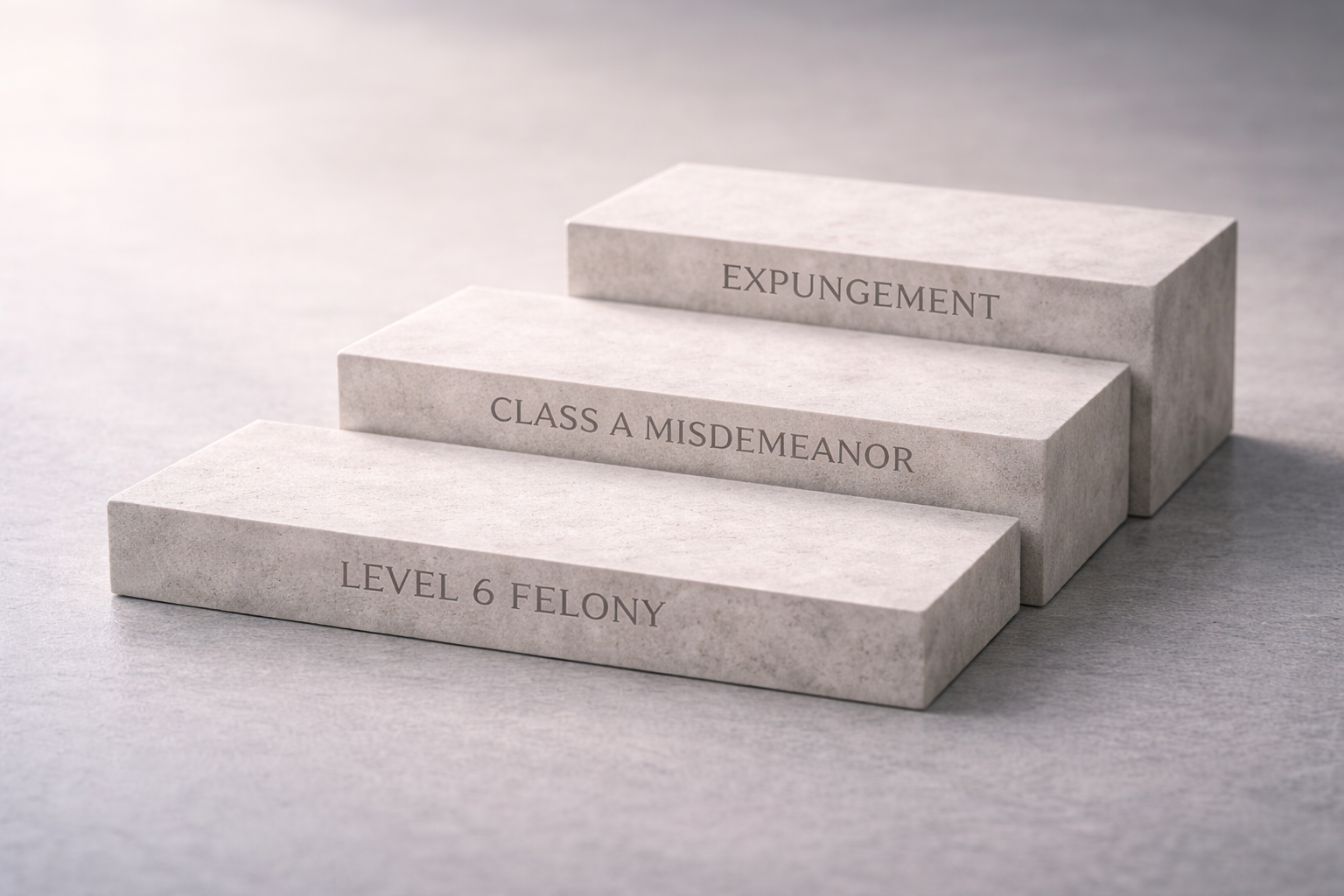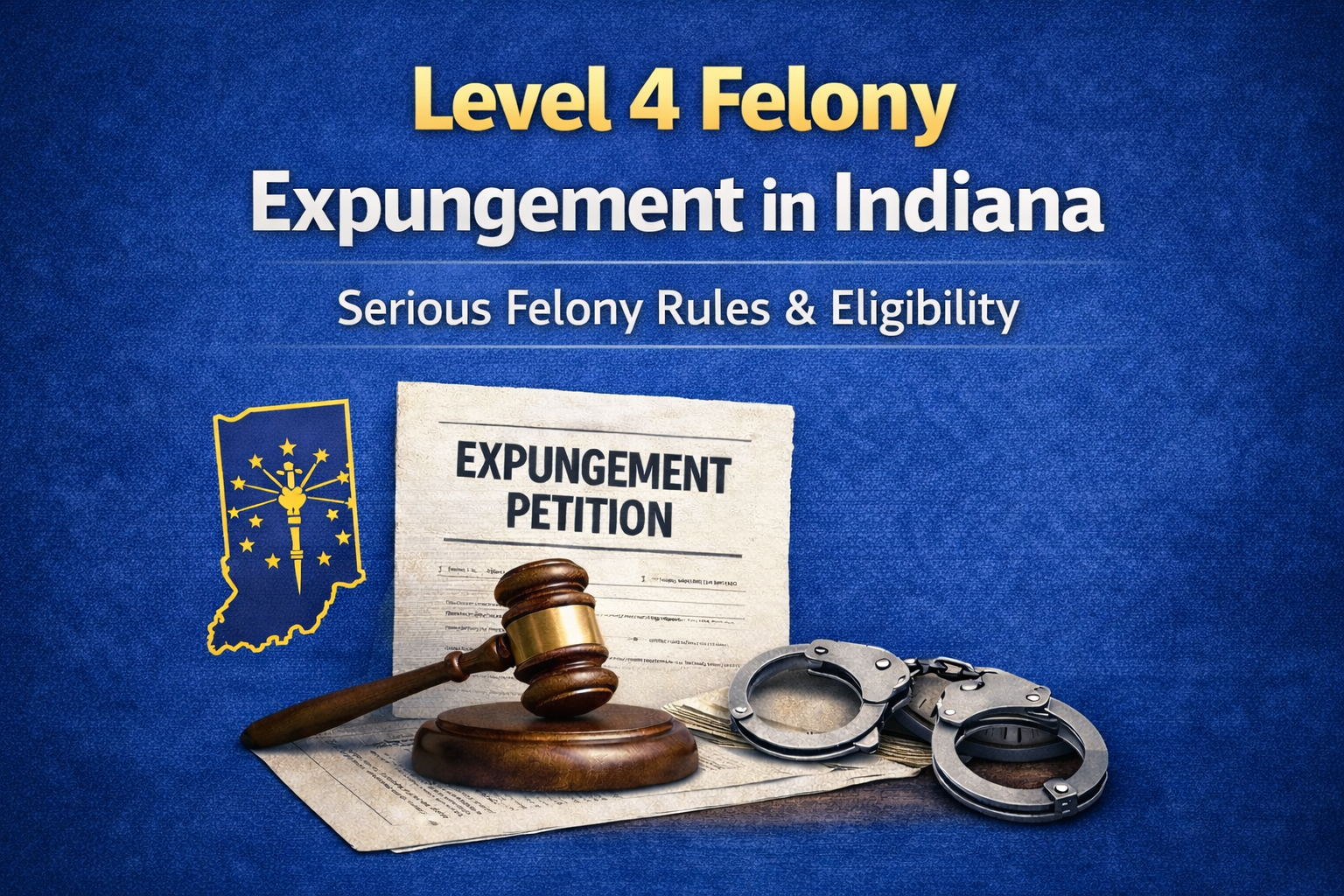Who Qualifies for Expungement in Indiana? A Complete Guide
Introduction: Clearing Your Record in Indiana
A criminal record can hold you back from employment, housing, and other opportunities. Fortunately, Indiana law allows individuals to expunge certain convictions, giving them a second chance. However, not everyone qualifies for expungement. Understanding who is eligible and the process involved is crucial to successfully clearing your record.
In this guide, we’ll break down who qualifies for expungement in Indiana, what records can be cleared, and how to start the process.
Understanding Indiana’s Expungement Law
Indiana’s Expungement Law (also known as the "Second Chance Law") allows individuals with certain criminal records to petition the court to seal or remove their records from public access. The law applies to arrests, misdemeanors, and felonies, but each category has specific requirements.
The expungement process in Indiana is governed by Indiana Code § 35-38-9, which outlines who qualifies based on the type of record and waiting period.
📜 For full legal details, you can review the statute here: Indiana Expungement Law (Indiana Code 35-38-9).
Who Qualifies for Expungement in Indiana?
To determine whether you qualify for expungement, you must consider the type of record you have and how much time has passed since your case was resolved.
1. Arrests and Charges That Did Not Result in a Conviction
✅ Who qualifies?
If you were arrested but never charged.
If charges were dismissed.
If you were acquitted (found not guilty).
✅ Waiting period:
No waiting period required—you can file for expungement immediately after the case is dismissed or you are acquitted.
✅ Effect of expungement:
The record is sealed from public view.
Law enforcement agencies still retain access.
2. Misdemeanor Convictions
✅ Who qualifies?
Anyone convicted of a misdemeanor.
Class D or Level 6 felonies that were later reduced to misdemeanors.
✅ Waiting period:
At least 5 years must have passed since the conviction date.
You must have completed your sentence, including probation and any required restitution.
No pending criminal charges.
✅ Effect of expungement:
The record is sealed from public access.
Employers and landlords will no longer see the conviction on background checks.
3. Level 6 and Class D Felony Convictions
✅ Who qualifies?
Those convicted of non-violent Level 6 or Class D felonies.
✅ Waiting period:
At least 8 years must have passed since the conviction date.
All sentencing requirements must be completed (including probation and restitution).
No pending criminal charges.
✅ Effect of expungement:
The record is sealed from public view but still exists for law enforcement purposes.
4. Serious Felony Convictions (Higher than Level 6)
✅ Who qualifies?
Individuals convicted of more serious felonies, excluding violent crimes and sex offenses.
You must receive written approval from the prosecuting attorney.
✅ Waiting period:
At least 10 years must have passed since the conviction date.
You must have paid all fines, fees, and restitution ordered by the court.
No new criminal convictions in the past 10 years.
✅ Effect of expungement:
Employers cannot use it against you in hiring decisions.
5. Crimes That Do NOT Qualify for Expungement
Not all offenses can be expunged in Indiana. You do NOT qualify if your conviction was for:
❌ Homicide or voluntary manslaughter
❌ Sex offenses (rape, child molestation, or sexual battery)
❌ Human trafficking
❌ Official misconduct (for public officials)
❌ Certain violent crimes
How to File for Expungement in Indiana
If you qualify for expungement, the process involves several legal steps:
Step 1: Gather Required Documents
📝 Obtain court records for your case.
📑 Get proof of completed sentencing (probation, restitution, etc.).
💳 Ensure all fines and fees are paid.
Step 2: File a Petition for Expungement
You must file a petition in the court where the case was originally handled.
Each county may have different filing procedures, so check with the local court.
Step 3: Serve the Prosecutor
In felony cases, the prosecuting attorney must review and approve the request.
Step 4: Attend a Court Hearing (If Required)
Some expungement cases require a court hearing, where you may need to argue why expungement is appropriate.
Step 5: Judge’s Decision
If approved, the expungement order is signed, and the record is sealed or marked as expunged.
What Happens After Expungement?
✔ Your record is no longer available to the public.
✔ Employers and landlords cannot see it on background checks.
✔ You do NOT have to disclose expunged convictions on job applications.
✔ Your rights (such as voting and holding public office) may be restored.
🚨 Important: Expungement is a one-time opportunity in Indiana—you cannot file multiple petitions, so it’s crucial to get it right the first time.
Why You Need an Attorney for Expungement
Expungement law is complex, and mistakes in the petition process can result in a denial. An experienced expungement attorney can:
✔ Ensure you meet eligibility requirements.
✔ File your petition correctly.
✔ Advocate for you in court if necessary.
✔ Prevent costly mistakes that could delay your expungement.
📞 Need help with expungement? Contact Vining Legal LLC today at (317) 759-3225 or schedule a consultation to get started on clearing your record.
Conclusion: Take the First Step Toward a Clean Slate
Expungement gives you a fresh start by sealing your criminal record from public view. If you qualify, taking action now can open new doors for employment, housing, and personal opportunities.
🔹 Not sure if you qualify? Speak with an attorney today and start the process of clearing your record. Your future is worth it.





